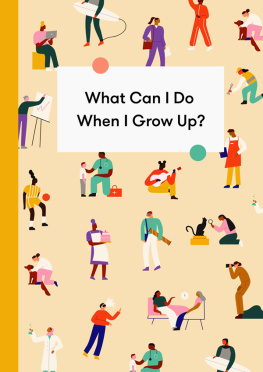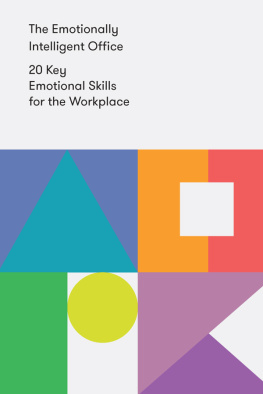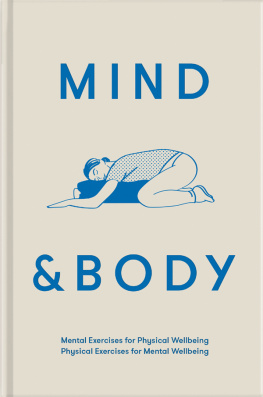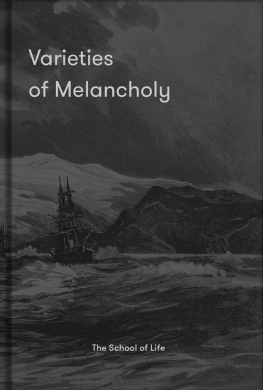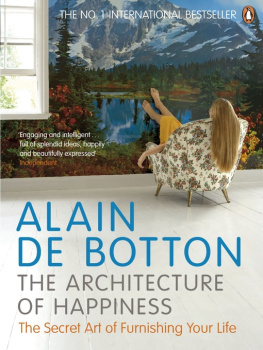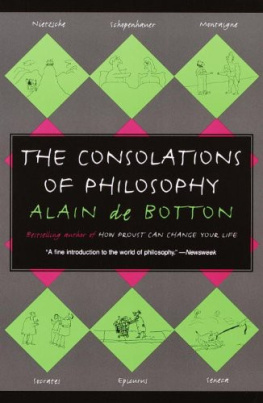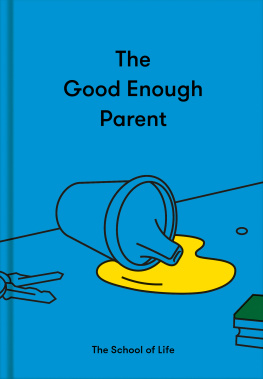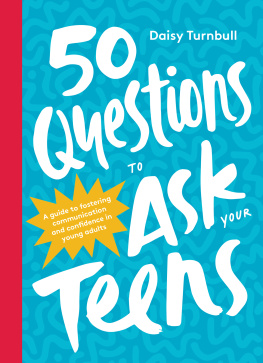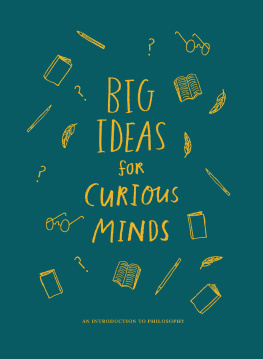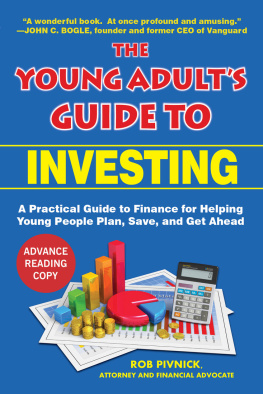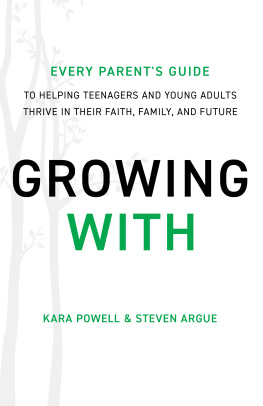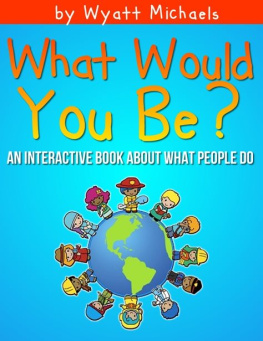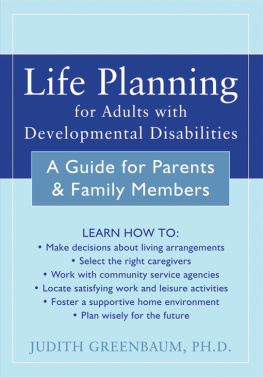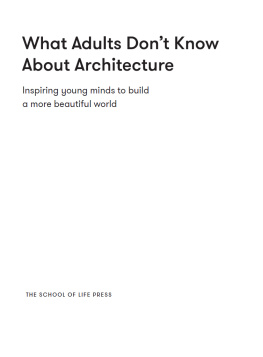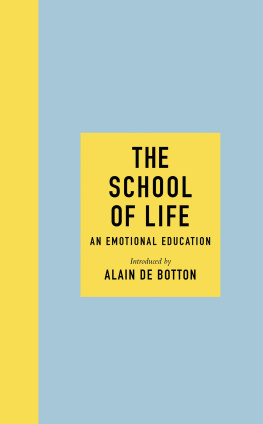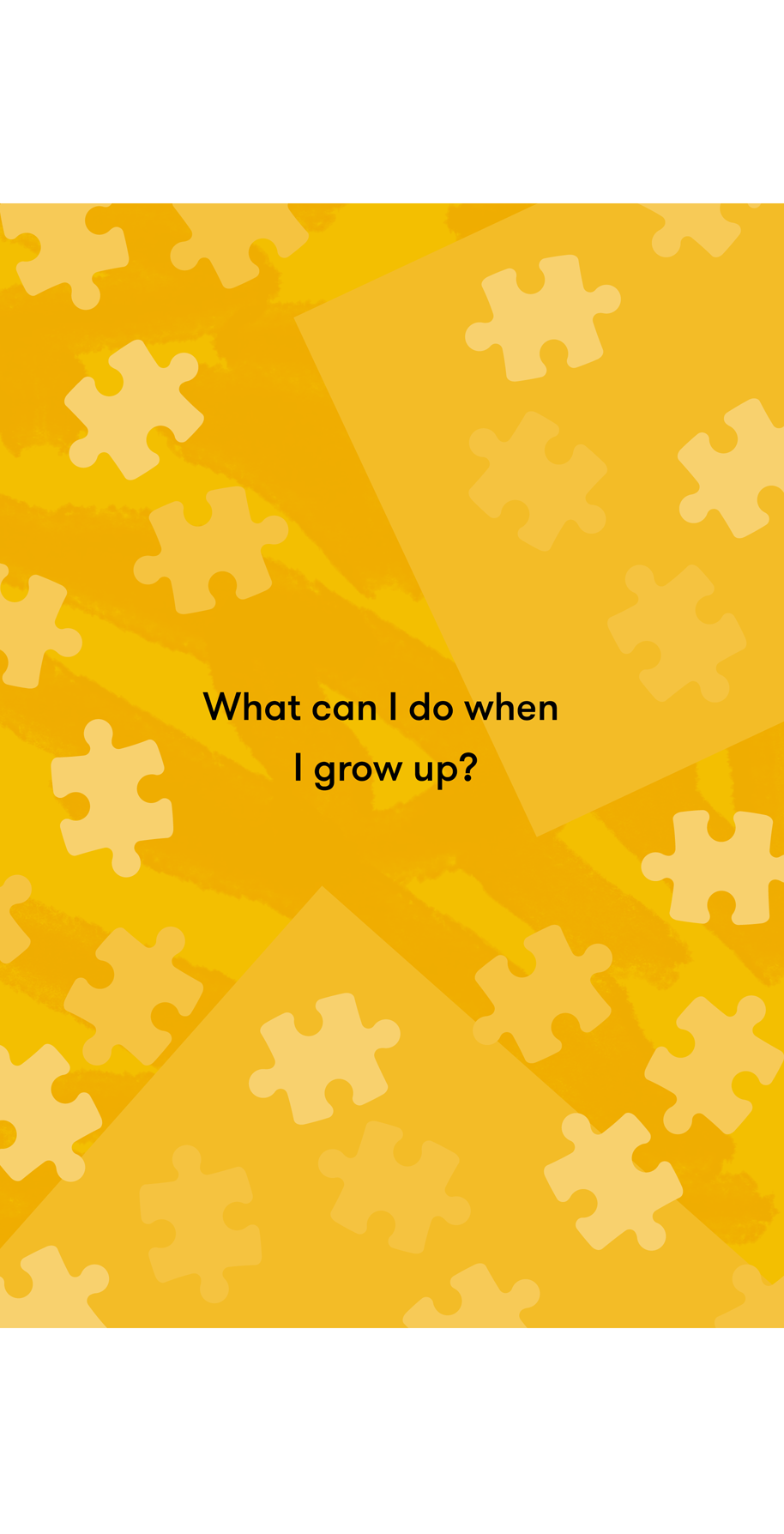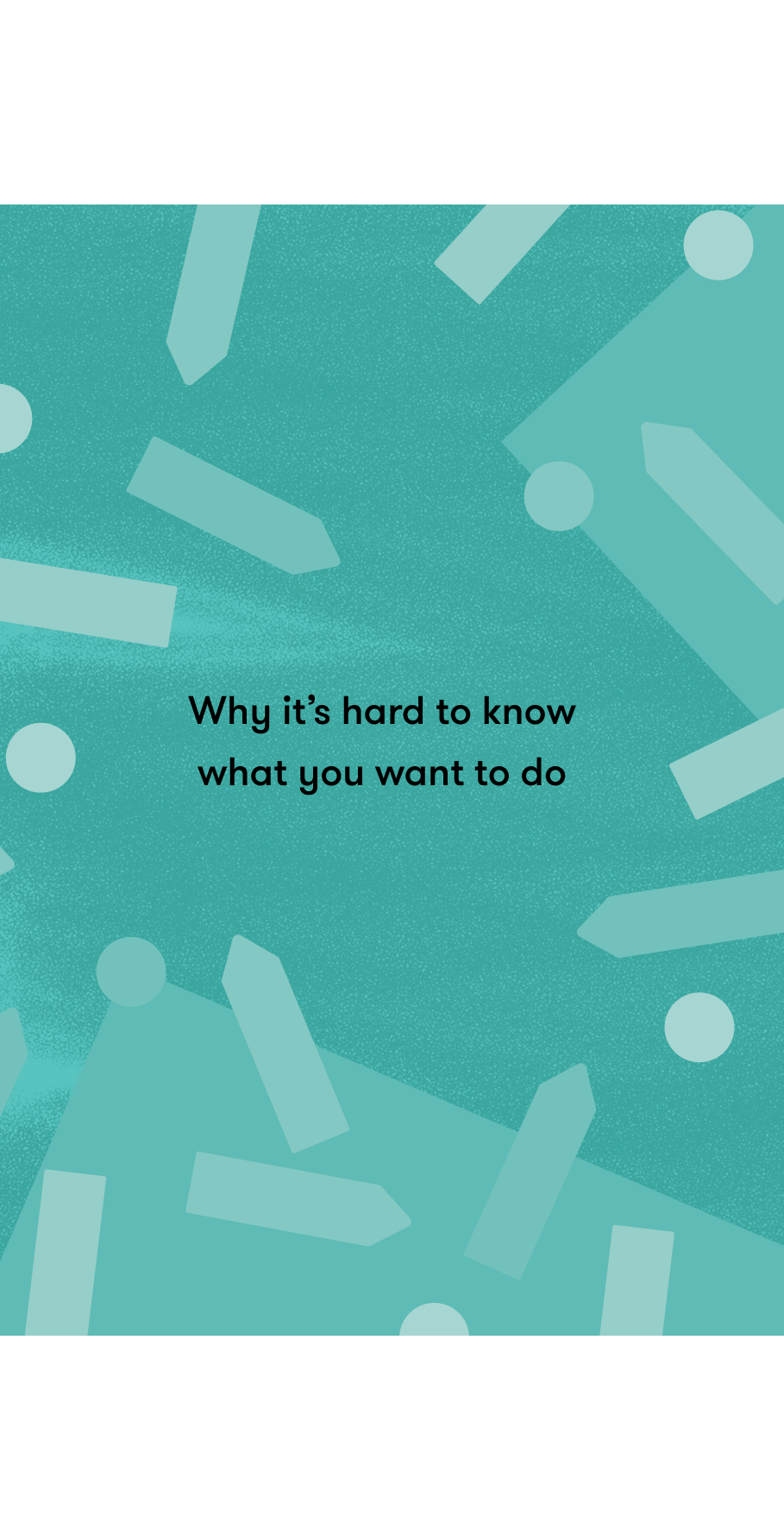Contents
Guide
What Can I Do
When I Grow Up?
What Can I Do
When I Grow Up?
A young persons guide to careers,
money and the future
THE SCHOOL OF LIFE PRESS
Published in 2019 by The School of Life
70 Marchmont Street, London WC1N 1AB
Copyright The School of Life 2019
Character illustrations Tyla Mason
Design and illustrations by Studio Katie Kerr
Printed in Latvia by Livonia
All rights reserved. This book is sold subject to the condition
that it shall not be resold, lent, hired out or otherwise
circulated without express prior consent of the publisher.
Every effort has been made to contact the copyright holders
of the material reproduced in this book. If any have been
inadvertently overlooked, the publisher will be pleased to
make restitution at the earliest opportunity.
The School of Life offers programmes, publications and
services to assist modern individuals in their quest to live
more engaged and meaningful lives. Weve also developed
a collection of content-rich, design-led retail products to
promote useful insights and ideas from culture.
www.theschooloflife.com
ISBN 978-1-912891-71-9
10 9 8 7 6 5 4 3 2 1
Contents
I ts impossible to spend time with adults without one of them coming up to you and asking (as if it were the most normal thing in the world), What do you want to do when you grow up? They mean for this to be a relatively simple question; the idea is that youll quite easily be able to say something like, a teacher or a doctor and then they will move on and bother someone else.
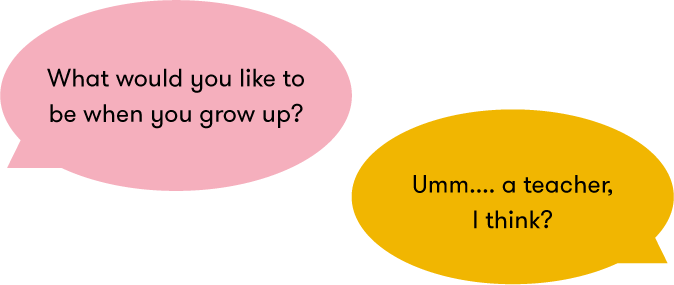
But the real answers to this question can be much more complicated, and if youve ever felt confused or annoyed by being asked it, you have every right. Properly knowing what you want to do with your working life is one of the biggest, strangest and hardest questions of all. It may take you decades to find a good answer to it and it is one that most adults are still grappling with, even the ones who are already quite old and who know how to do a lot of complicated work things already (like paying taxes or managing an office). If you could magically look inside the minds of the majority of adults, you would find many of them trying to decide whether the job they are doing now is truly the one they want to keep doing, and asking themselves big questions like, What do I really enjoy? and Whats it all about? Another somewhat strange secret is that a lot of adults do not actually feel like adults inside. Theyre older, of course, but in their minds, they may secretly be feeling not so different from when they were a lot younger; they might be wondering when real adult life will begin and why a lot of things dont have the neat answers they once hoped they might have. In other words, it is truly odd that this enquiry What do you want to do when you grow up? is so often seen as a childs question when, in fact, its a really tricky adult question that even the most serious and wise grown-ups have problems with.

In order to answer this question properly, you need to know a lot about yourself (what you enjoy, what you're good at, what excites you), you should know a lot about the world (what money is, what jobs are available, what the economy is) and then you need to somehow put the two together, fitting what you like and can do to the needs and requirements of the world.
It is a very complicated puzzle, and it is true madness that adults have come to think that young people should be able to summon up a reply in a few seconds, on the basis of having been to school for a few years. We would not expect a child to know how to drive a car or build a robot without being taught how to first, so nor should we expect a young person to work out the meaning of work on their own. So this is a book that is a bit annoyed by the way that children and young people are asked about the future, and that wants you to take this question more seriously than you are normally allowed to so that it can hopefully point you in the right direction.
A word of warning, though: we are definitely not promising you that by the time you finish this book, youll know exactly what you want to do with the next fifty, sixty or seventy years of your working life. However, we can guarantee that youll at least start to appreciate why the question about your future is quite subtle, quite complex and very important. The next time an adult you dont know well asks you this question, you will also have some good replies, for example, I dont know yet but Im thinking about it And if youre feeling brave, you could add (with a smile), What about you, do you know what you want to do? They might stop bothering you quite quickly after that or itll be the start of a fascinating conversation.
T here are some particular reasons why knowing what you might want to do is so difficult at this point in time. Lets look at a few of these reasons:
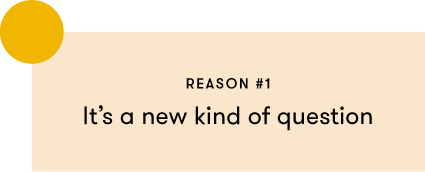
For most of human history, people didnt go around asking, What should I do when I grow up? The issue was far simpler and far more automatic: you just did whatever your parents did. If your parents had a sheep farm, youd be a sheep farmer; if they were bakers, youd be a baker; if they had a ferry across a lake, youd have a ferry across a lake.
Even being a painter a job that nowadays we think of as something you do because you especially love drawing was in the past an occupation you took up primarily because your family was devoted to it. Thats how it worked all over Italy at the end of the Middle Ages.
Take the Bellini family, who lived during the 15th and 16th centuries. They went into painting (doing lots of different paintings of Jesus and Mary) generation after generation, simply because thats what you did when your surname was Bellini.
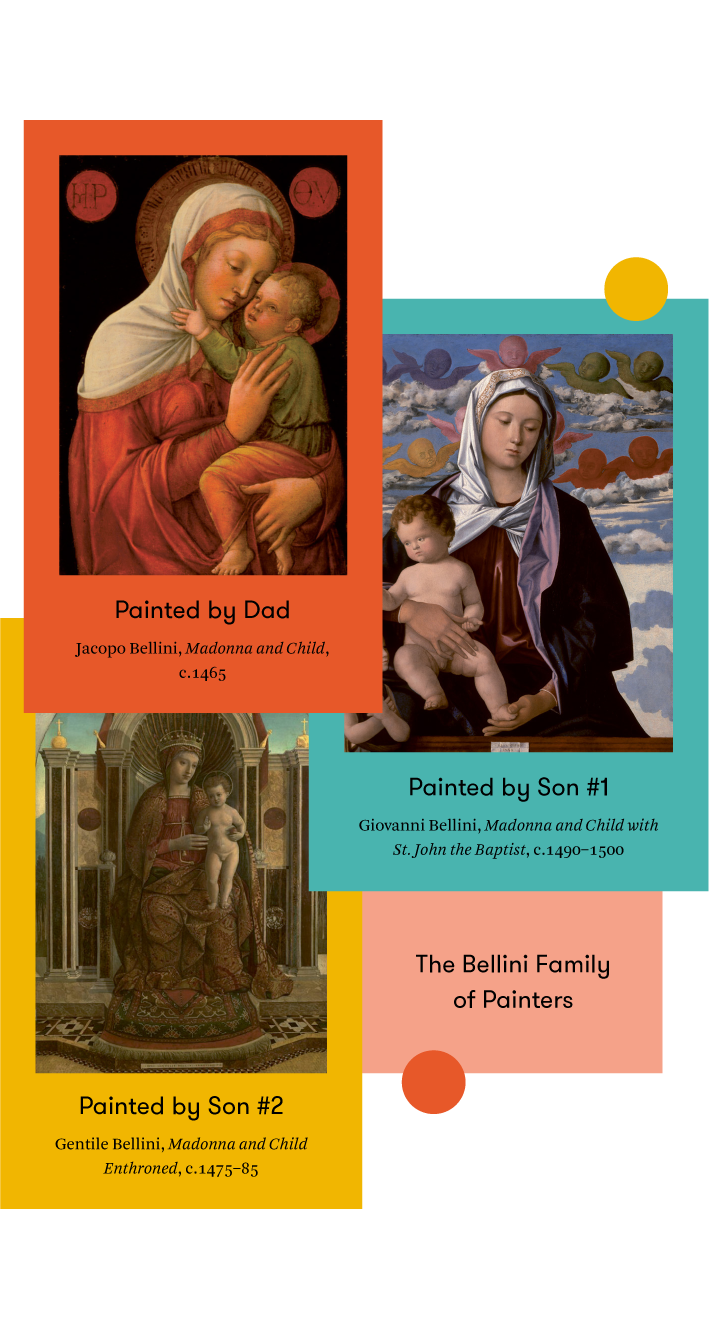
In other words, you never had to worry about what job you wanted to do; the issue was decided for you by the family you were born into. In some ways, that made things much simpler. There wasnt too much agonising. People did not stress that they were in the wrong job or that there might be a better job that they hadnt been clever or canny enough to think about doing. They got on with the only job that was available to them. Sometimes the fit was perfect: what their family did was exactly what they enjoyed doing. But obviously at other points, there were some unhappy matches: lawyers who dreamt of playing the trombone and trombone players who would have loved to be carpenters and carpenters who dreamt of designing ladies handbags (we have made that one up, but you get the picture).

